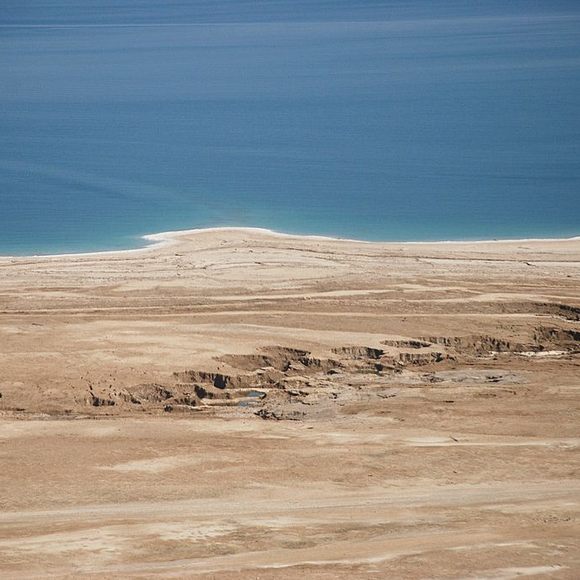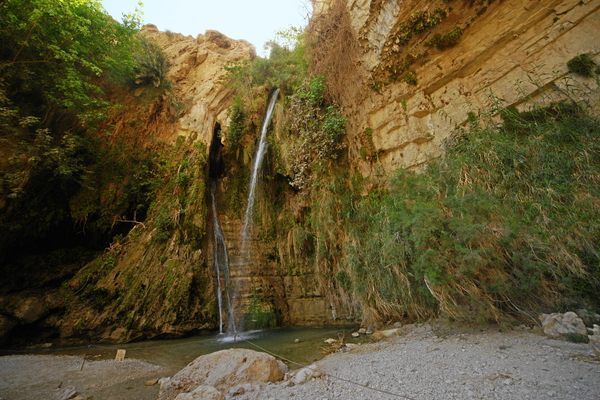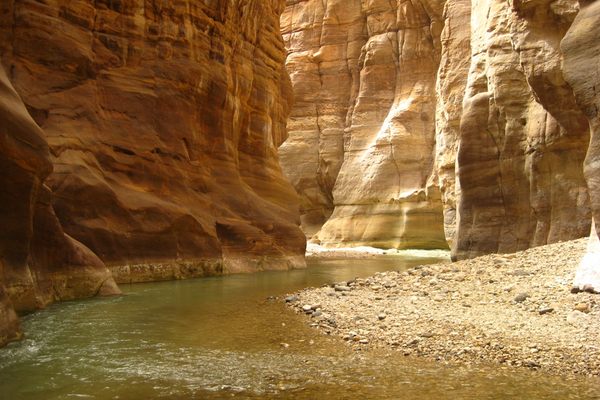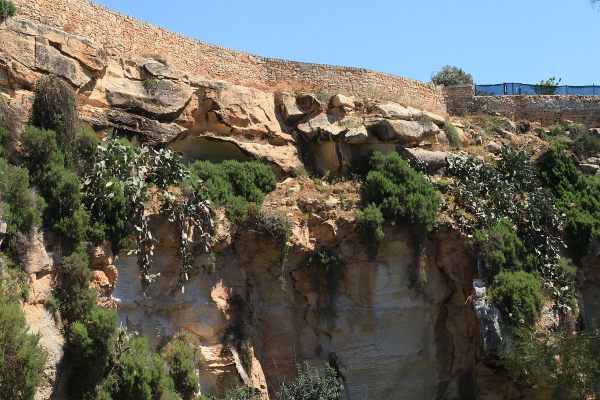Dead Sea Sinkholes
As the Dead Sea continues to deplete, massive sinkholes open along its banks.
Every year, hundreds of sinkholes open along the banks of the Dead Sea, some as deep as a two-story building. And although the pockmarked landscape may look striking in aerial photos, the sinkholes are a big problem - one that will require significant human effort to remedy.
The Dead Sea is actually a lake, or has been since its outlet to the Sea of Galilee evaporated around 18,000 years ago. The pool sits nearly at 1400 feet below sea level, making it the lowest point on earth. Its famously salty water - 10 times saltier than the Atlantic Ocean - is thanks to the huge quantities of minerals that have been deposited and trapped in the lake bed over millennia.
Salt plays a supporting role in the sinkhole outbreak. People play a much larger one. Demand for water from the Jordan River, the main tributary of the Dead Sea, has ramped up in the last few decades, with water being siphoned off for drinking, irrigation, and industrial activity. This diversion has caused the Dead Sea to shrink rapidly, losing around three feet a year. Unfortunately, the recession of the salt water allows freshwater to flow into underground layers of earth near the shoreline. The freshwater dissolves the salt brines in these areas, creating underground cavities capable of collapsing into themselves at any moment. There’s no consistent way to predict when or where the earth will crumble.
The largest sinkholes can be spotted outside Ein Gedi, near Masada, and are causing strain on agriculture and tourism. Human activity is not the only thing at risk. Although the Dead Sea’s water is too salty to sustain anything more complex than a microbe, the oases along its shore support a complex ecosystem of plants and animals. As the Dead Sea recedes, the springs that feed these oases are also at risk of disappearance.
Although the sinkholes continue to open, in December 2013, Israel, Jordan, and the Palestinian Authority signed on to a $900 million public works project to combat the Dead Sea’s diminishment. A new desalination plant in the Jordanian port of Aqaba on the Red Sea, will provide fresh water for all parties, and the brine produced as a result will be transported via a 110 mile pipeline to replenish the Dead Sea. For now, though, watch your step.
Community Contributors
Added by
Edited by
The Atlas Obscura Podcast is Back!



























Follow us on Twitter to get the latest on the world's hidden wonders.
Like us on Facebook to get the latest on the world's hidden wonders.
Follow us on Twitter Like us on Facebook